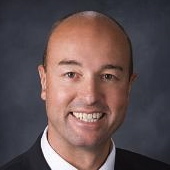The first meeting of the Legislature’s K-12 interim committee was detailed and, at times, pretty dry.
The 10 lawmakers spent much of the day on a deep dive into the complicated world of school data collection. Compared to any number of hot-button education issues — from computers in the classroom to teacher pay to charter education — this is an under-the-radar issue if ever there were one.
Not surprisingly, most seats in the Statehouse’s 200-seat Lincoln Auditorium went unused; a series of panel discussions on longitudinal student data tends to have a chilling effect on public interest. But also not surprisingly, committee members heard an earful from school district officials.
They heard about problems with the Idaho System for Educational Excellence, or ISEE, the state’s fledgling longitudinal data system. ISEE has streamlined data collection for the state — which now receives one exhaustive monthly data dump from each of the state’s 115 school districts — but district officials have said they have to shuffle staff to compile and format the data, and then work to get the data to go through to the state.
They also heard a stinging critique of Schoolnet. Considered the next phase of ISEE, Schoolnet is designed to allow teachers to access student information in real time, so they can tailor curriculum accordingly. But some districts have opted to pay for other software systems that track student growth and performance, and some districts have decided to drop Schoolnet after trying it out. And in Meridian, one of the 51 districts piloting Schoolnet, the system is pretty much on hold.
“I can’t train on a product that’s not accurate,” district curriculum coordinator Cindy Sisson told lawmakers.
The complaints aren’t necessarily new. But even though the meeting was sparsely attended, the fact that this interim committee spent more than five hours on data collection concerns was not insignificant. That also fixed some attention on the issue — generating coverage not just here at Idaho Education News, but prominent coverage in Friday’s Idaho Statesman.
Lawmakers didn’t just hear criticisms about the data systems. In their presentations, State Department of Education officials acknowledged some glitches in the implementation process, but also spoke of the systems’ potential.
Paige Kowalski of the Data Quality Campaign, a Washington, D.C.-based nonprofit, offered lawmakers an independent, tempered view.
She said ISEE is a good data collection system — and while some states took 10 to 12 years to set up their system, Idaho set up its system in a fraction of the time. (In 2009, Idaho accelerated the ISEE rollout by a full year, as a condition of receiving federal economic stimulus dollars for education.)

Kowalski also tried to assuage lawmakers’ concerns about security, downplaying privacy issues with states’ data systems. That doesn’t mean the 2014 Legislature won’t address the issue; on Thursday, Senate Education Committee Chairman John Goedde said he would introduce a data security bill next session.
The bigger question, perhaps, is whether legislators run other bills to address data issues.
Will lawmakers take up Tom Taggart’s suggestion to fund additional state and district positions to handle ISEE? Taggart, director of business and operations for the Lakeland Joint School District, called ISEE an “unfunded mandate,” and said the state’s $2.5 million line item for IT help is inadequate.
Will lawmakers take a closer look at Schoolnet, and future Schoolnet spending? This year, the state is spending $4.5 million in J.A. and Kathryn Albertson Foundation money on the project — the final phase of a $21 million grant — while kicking in a matching $4.5 million in general fund money for maintenance, operation and licensing, and $150,000 for professional development.
To be sure, the 2014 Legislature will have bigger ticket educational issues on their agenda. And while data was the main topic of discussion Thursday, the committee heard other appeals for funding.
The Idaho Education Association put in a pitch for reinvesting in teachers — after an additional 1,864 Idaho educators left the classroom in 2012-13. The Idaho School Boards Association made a case for restoring $82.5 million in district operational budgets, reversing cuts from the recession and providing breathing space to pay for employee benefits, busing and utilities.

Data collection may be destined to be a less than sexy issue, especially as the 2014 Legislature considers recommendations from Gov. Butch Otter’s educational reform task force — a broad-based group that supports a teacher salary ladder and restoring the districts’ operating budgets, among its list of 21 ideas.
But as Superintendent of Public Instruction Tom Luna pointed out Thursday morning, good data is essential to many of the task force’s recommendations, from student mastery and literacy goals to a teacher career ladder, hinge on good data.
And as Thursday’s meeting wrapped up, House Education Committee Chairman Reed DeMordaunt acknowledged the scope of the issue. “Clearly we’ve got some challenges here, no question about it.”
Disclosure: Idaho Education News is funded through a grant from the J.A. and Kathryn Albertson Foundation.
More reading: Links to Clark Corbin’s coverage of Thursday’s meeting, and Kevin Richert’s live blog.
